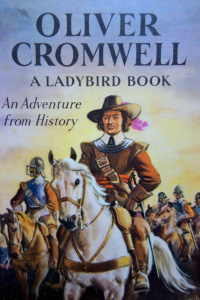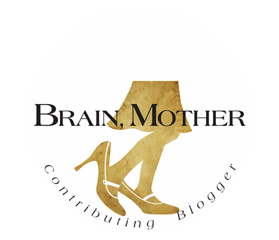In 1642, Oliver Cromwell led a contingent of parliamentarians against King Charles I, defeating him in what became known as the English Civil War and giving rise to the only occasion in modern British history where the monarchy has not held power. Three and a half centuries later, he became my husband’s hero for it, my husband who is a constitutional lawyer and a committed republican (small ‘r’). In the years before the arrival of our first child, we lived in Oxford, both of us affiliated with the University there. Amidst its hallowed halls and Gothic spires, people would talk in hushed tones about their ‘periods’ of expertise. My husband’s period was the seventeenth century. Cromwell was his guy.
Unsurprisingly, Oliver was always his first choice for a boy’s name. It became mine too. We said we weren’t having children, though, so we bestowed instead the name Cromwell upon our future dog, a brown and white beagle. Things changed and we didn’t get the dog. But we did welcome a son who was, of course, called Oliver. My husband wanted it because it was traditional and historically grounded. I wanted it because it was sparky and unconventional. It is both of those things, depending on where you come from: this is what has made the Venn diagram effect of our name selection so successful. The year Oliver was born it was the fifth most popular baby name in the UK. In the US, it hadn’t even broken the top 100.
In 2005, Nicole Krauss published a book called The History of Love, which quickly became one of my all time most adored pieces of writing. My husband read it also and, even more astonishingly, he liked it: one of the 4.5 novels in the world the merit of which we have ever agreed on. The book focuses on a cracker of a character - old, Jewish, lonely - a man waiting for the Grim Reaper to claim him. It begins: ‘When they write my obituary. Tomorrow. Or the next day. It will say, LEO GURSKY IS SURVIVED BY AN APARTMENT FULL OF SHIT.’
Boom. We both seized upon the name instantly, not for a death but for a birth. During the middle ten or so weeks of my pregnancy, a time when I must have been flushed with feel-good hormones and delusions of grandeur, I was sure that we would call this child Leopold, the full, hefty name of Krauss’ protagonist. By the end, though, we simmered down, settling happily on Leo itself: short, strong, charismatic. Just like our son. Number 43 in the UK that year; didn’t make the top 100 in the US.
In 1994, the TV show Friends took America by storm. One of the six 20-somethings the program revolved around was an uber-quirky blonde named Phoebe, whom our Phoebe was named in spite of, not after. When we were expecting baby number one - and baby number two, for that matter - Phoebe was a chronic runner-up to Zoe. Then we had two boys. Then life took over and we got close to a lovely couple who had the gall to name their own kid Zoe well before we knew them. When I became pregnant again, Phoebe moved into pole position.
The first two times we were contemplating it - in 2005 and 2007 - the Friends reference was still strong. By 2011, it was much less so. Thank goodness for that because Phoebe is too sophisticated and classically poignant a name to be forever shackled with an association to Lisa Kudrow’s bizarre alter ego. It is Greek in origin, which is my period, and it means ‘radiant’ or ‘shining’. The spelling makes it sultry almost. It is related to Phoebus Apollo, one of my favorite members of the Greek pantheon, the god of light, of music and of so much else that is beautiful. Apollo is a twin (no, we didn’t consider Artemis), as is the Phoebe from Friends (no, we never considered Ursula), as is our Phoebe. Twin names, even more so than sibling names, cannot be chosen in isolation. Number 34 in the UK; outside of the top 100 in the US.
Which brings us to Jasper. A wasp, a gemstone, the name of the don who taught me Homer inside the cobblestones of Balliol College - a scene which perhaps best captures its connotation. To the British ear, Jasper sounds posh, a bit pretentious, fluffy even. The word for him might be ‘toff’. I’m pretty sure my in-laws winced when we told them. To the American ear, however, it is fun and fresh.
This was the hardest moniker for us to agree on, the third boy, the best names already gone. In another life, Jasper would have been Eli or maybe Ezra, but he is one of a set and, paired with Phoebe, we wanted a less prevalent vowel sound. Jasper was the only one of the four names that was really my choice alone. My husband conceded it to me, probably because by the fourth round he was just too worn down to put up a fight. In 2011, Jasper didn’t make either the UK or US top 100.
There you have it: a parliamentarian, an old Jewish man, a Friend and a wasp. Don’t even get me started on their middle names.


